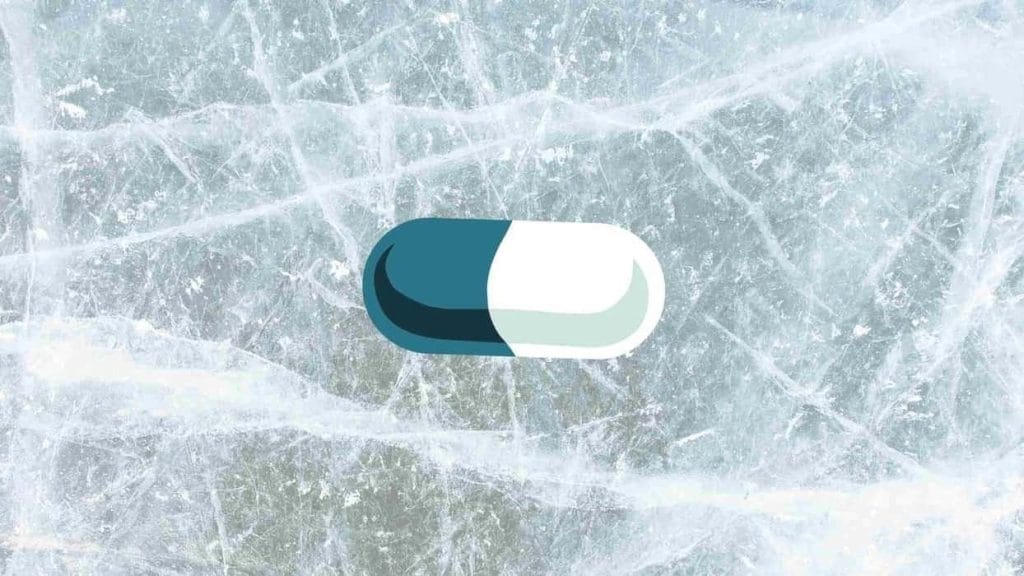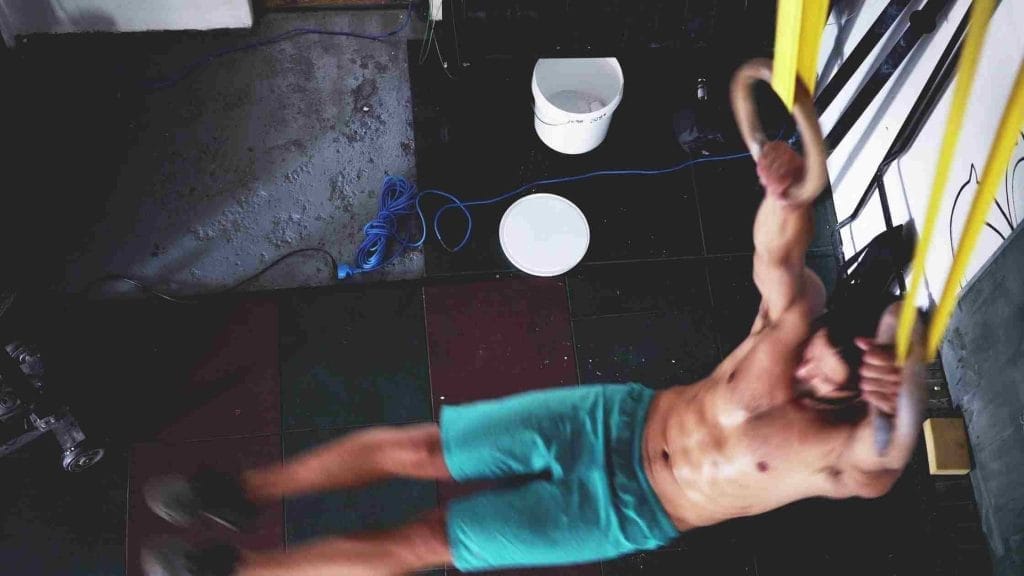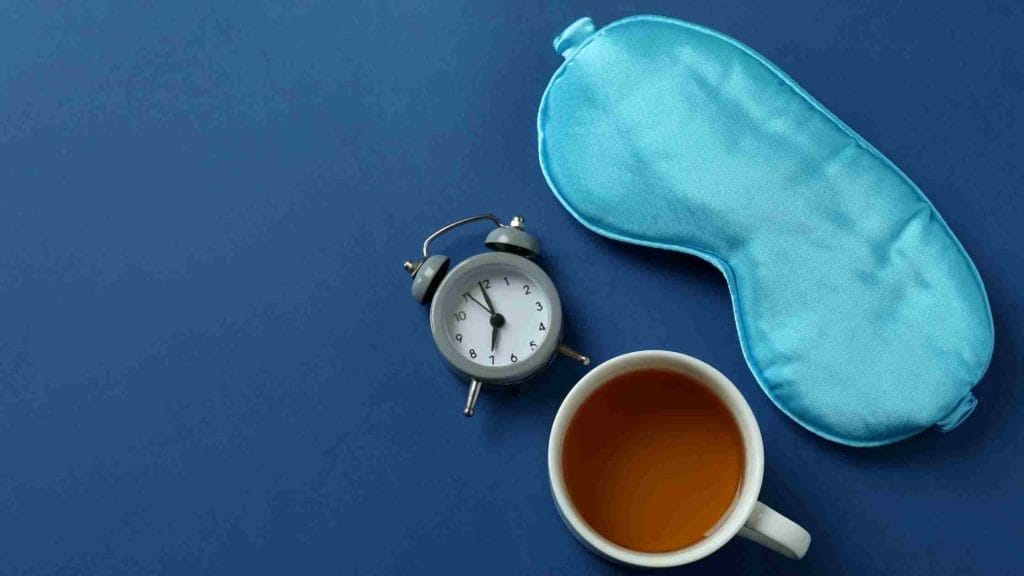5 Benefits of Cold Plunge – Why Ice Baths Are Crucial For Athletic Performance
We include links to products we think are useful for our readers. If you click and buy a product through one of the affiliate links on this page, we may earn a small commission.

Ice bath benefits: Why it’s time to take the plunge and boost your recovery with a cold plunge practice
Benefits of Cold Plunge
Ice bath benefits hit you almost instantly. Cold Plunge recently featured at the Crossfit Games 2022 and indeed ice baths are becoming a viral practice through exposure on platforms like the Joe Rogan Experience, The Huberman Lab podcast and popular content on Instagram and Tik Tok.
The benefits of ice baths are huge. Cold exposure for athletic performance and exercise recovery is not a new practice but the benefits of ice baths are becoming more mainstream as quality ice bath tubs become more accessible.
Combining ice bath and sauna or heat therapy together, also known as contrast therapy, is also a highly discussed method of incorporating cold plunge into recovery techniques, although the evidence of beneficial effects is not extensive.
For athletes and home users alike, there are a couple of key reasons to take regular ice baths following exercise and as part of a simple practice to improve overall health.
Regular users of cold plunge will reap the rewards in the form of adaptive hormesis, regulating hormones relating to sleep, regulating energy levels, mood maintenance, faster recovery after training and improved mental resilience and even brain health.
Whether you are already a regular ice bather looking for confirmation in your echo chamber, or a cold plunge critic looking for the science behind ice baths, we discuss 5 benefits of ice baths that give you good reason to start, maintain or increase your ice bath sessions.
What are the benefits of ice baths?
There are a couple of very obvious benefits of taking an ice bath or cold plunge and a few more discreet or subjective benefits that have not yet been specifically studied and still sit within the area of anecdotal benefits. If you are wondering “does cold plunge actually work?”, these are the 5 main reasons to take a regular ice bath:
Adaptive Stressor
Adaptive or hormetic stressors are those which make the body more resilient and stronger when exposed to them in the right doses. This is quite literally a case of ‘what doesn’t kill you makes you stronger’. When you shock the body by exposure to the cold, in this case in cold water, it is a stress on the body that forces it to try to maintain or return to homeostasis.
Dr. Rhonda Patrick discusses this function of ice baths quite in depth and explains that the release of various hormones and neurotransmitters in the brain and body when you submerge the body in cold water is initially creating a fight or flight response but then shift the body into a state of relaxation and calm, providing adaptations. On her website, she also has a section that explains the evolutionary origins of hormesis including a video.
Reduced Recovery Time
Faster recovery from exercise including pain, swelling and inflammation reduction are perhaps the most common reasons people take an ice bath. Ice baths are a common practice among sporting teams for post game recovery and have even recently come to the forefront at events like the Crossfit Games with big names like Rich Froning touting the benefits of ice baths.
The science behind using cold plunge for this reason comes down to two main things: shock proteins and vasoconstriction. Cold exposure causes an initial vasoconstriction and central pooling of the blood to protect the vital organs. In a study, following an ice bath the muscles had higher oxygenation, greater force production and decreased muscle soreness.
Hot tip: to further boost this vasodilation or increased blood flow after an ice bath, you could try contrast therapy whereby you cycle through blocks of cold plunge then into a sauna, repeating this over a couple of rounds. We really like the protocol of five minutes ice bath at 10 degrees C, then 10 minutes sauna at 80 degrees C, three times through. This is known as contrast therapy and is commonly used by high level athletes to recover faster and reduce pain and inflammation.
The shock protein side of things, cold exposure is now known to release cold shock proteins, much like heat therapy from a sauna releases heat shock proteins. These cold shock proteins such as RNA binding motif 3 (RBM3) are linked to regeneration of synapses. This process allows for dead or damaged proteins to be destroyed and removed while new cells are produced, potentially speeding up injury recovery.
Mood Regulation

Ice baths activate the sympathetic nervous system, heart rate increases, pupils dilate, blood vessels constrict and the vagus nerve is stimulated, causing a cascade of positive effects. The release of norepinephrine and adrenaline from taking an ice bath could have some effect on the brain that show great promise for alternatives to prescription medications.
Read Also: Using Cold Plunge For Improving Mental Health – An Ice Bath For The Brain
If you take regular ice baths like I do, you may be familiar with the before and effects of a single ice bath session on your energy levels and mood. Having gone into 100’s of cold plunge sessions with low energy, lethargy and low mood, then come out the other end full of vitality, energy and good vibes it is quite obvious that cold plunge has some pretty awesome affects on the brain.
In a study from 2008, cold shock was shown to significantly increase the production of the hormone and neurotransmitter, norepinephrine, in the brain which significantly impacts mood and energy. What norepinephrine does is play a huge part in your state of mind including mood and emotions so increasing it can cause big shifts in overall mood and feelings of wellbeing.
Depression and anxiety are two of the biggest mental health conditions globally. As a caveat, if you are experiencing any mental health issues, you should get in touch with a professional for support and medical advice and only use the information in our article for educational and informative purposes.
The link between ice bath benefits and depression is also through norepinephrine. Norepinephrine plays a large role in depression and evidence suggests that imbalances in norepinephrine, serotonin and dopamine can have a negative effect on mental health. Although there have been limited specific studies on the direct link between ice baths and depression, it could be suggested that anecdotal evidence shows the norepinephrine boost from a cold plunge session of just 2 minutes could also boost mood.
Energy Boost

If you are familiar with a real cold plunge or even if you know the feeling of taking a cold shower, you have felt the effects of the cold taking your breath away, causing pupils to dilate, breathing to accelerate and heart rate to rise initially. These are all in conjunction with huge releases of norepinephrine and adrenaline that are basically signalling that you should leave the environment. If you can sit with this feeling long enough and fight the urge to leave you are promoting a few pertinent benefits.
The norepinephrine release from ice baths is regulating the production of brown fat and improving mitochondrial function or the generation of ATP. The healthier your mitochondria are, the more ATP is produced, essentially meaning that the greater your aerobic capacity will be.
The heavy release of epinephrine (adrenaline) and norepinephrine (noradrenaline) from cold plunge are neurochemicals that can make us feel alert and can make us feel agitated, evident with the shouts and moans that are seemingly uncontrollable for some people taking an ice bath. Cold causes the levels of these hormones to stay super high for hours after the exposure and will effectively elevate energy and focus long beyond the ice, both physically and mentally.
Sleep Schedule

Ice baths for sleep? Body temperature is one of the most powerful signallers for sleep or waking. At night, a drop in core body temperature is a large indicator or driver to transition into sleep. In the morning, as we warm up, we wake up.
Many people are divided on the best time to do an ice bath, morning or night. In any case, you can manipulate your core body temperature with an ice bath of as little as 2 minutes to either shock the body into a wakeful state in the morning with a nice bonus boost for brown fat production, or drop the bodys core temperature at night to encourage sleep. We have also employed a Chilipad mattress cooler to achieve the same benefits of temperature regulation at night to promote an epic sleep.
What The Experts Say About Cold Plunge
Last time I did a cold plunge, I remember feeling slightly dizzy and my breath appeared to turn slightly icy and metallic, I wondered exactly what was going on. Generally, I have experienced only positive benefits of ice baths and cold plunge which are benefits backed up largely by various scientific studies and the increased attention of health experts and personalities like Joe Rogan.
While on a number of forums for Cold Plunge or Ice Baths, I noticed that the dizziness was a common occurrence with some pointing to low blood sugar levels and mild hypothermia, but didn’t find any conclusive reasoning for it.
Much of the other anecdotal evidence I have for the other positive benefits of ice baths like reduced muscle soreness, lowered pain perception, improvements in sleep, lower stress and cortisol, increased mood and more mental resilience are thankfully clearly backed by many experts. Below are some various expert viewpoints on cold plunge or cold water exposure as a practice.
Joe Rogan on Cold Plunge
Most people know Joe Rogan for his honest, wide ranging discussions on his podcast, The Joe Rogan Experience. Being a UFC commentator and martial arts expert, Rogan regularly discusses recovery methods like ice baths.
In a recent podcast, he talks about using the Morozko Cold Plunge tub at 34 degrees F for helping him overcome inflammation, pain and body soreness. He also talks a lot about the overall benefits of doing hard or challenging things over and over to reap the rewards of better self-control, mental resilience and toughness.
Andrew Huberman on Cold Plunge
Andrew Huberman and many of his podcast guests discuss the science and benefits of deliberate cold exposure for humans. On his website, Huberman has a fantastic summary of the benefits of cold plunge and these are all explained in depth in episode 66 of the Huberman Lab.
Huberman references the science and makes the recommendation of doing deliberate cold exposure for 11 minutes per week which can be spread over 3 or 4 cold plunge sessions of a couple of minutes each. Without specifying too much on ideal temperature, although he does say the colder the better, he uses the base measure of saying that “the water temperature should be uncomfortably cold yet safe to stay in for a few minutes.”
Susanna Soeberg on Cold Plunge
Susanna Soeberg has a PhD in Metabolism, expert in heat and cold exposure and is the best selling author of a book called Dopamine Nation. There are loads of podcasts with Soeberg discussing the Science of cold plunge including this one on Soundcloud. She has an interesting Instagram page and shares mostly the latest knowledge and practices around cold and heat exposure as well as other wellness areas of interest.
Interestingly, Soeberg is a big advocate for maximising the benefits of ice baths and deliberate bouts of cold exposure by allowing the body to reheat on its own. She recommends to “end with cold” as the ideal practice to a contrast therapy protocol, for the reason that you are forcing the body to reach its ideal resting temperature or homeostasis and maximising the metabolic benefits. She says that shivering is good!
By allowing your body to shiver (shivering thermogenesis) this process may enhance metabolic increases from cold. Shivering causes the accumulation of succinate from muscles and further activates brown fat thermogenesis. Soeberg infers that, instead of opting for the instinctual crossing of the arms, hunching of the body and use of a towel to create warmth, you can almost double the metabolic benefit by letting the shivering run wild, with the arms raised upright and no towel wrapped.
Wim Hof on Cold Plunge
Wim Hof has a huge following for his practices and ideologies around cold exposure. He has created courses and a cult following around this, with teachings available online, including regular workshops around the world.
A quick google search of Wim Hof, shows countless videos, articles and even scientific research papers on him as he explored how he uses cold plunge and breathing to access the autonomic nervous system, thought to be completely automated. Despite his eccentric demeanor, Hof shares some very incredible and at the same time credible insights into the benefits and real life stories of cold water therapy. Indeed, he regularly changes people’s lives through introducing them to cold exposure, breathing and movement.
Peter Attia on Cold Plunge
Back in 2020, Dr Peter Attia and Ross Edgley were experimenting with cold exposure in Norway by way of spending time outside in roughly -10 degree temperatures. The goal was brown fat activation which is one of the major benefits associated with cold exposure in general, not just cold water.
Petter Attia explores strategies and tactics to increase lifespan, health-span and wellbeing and optimise cognitive, physical and emotional health, no stranger to experimenting with and implementing practices like ice baths in the name of self-improvement.
Peter Attia describes cold exposure as cold showers, ice baths, open water swimming and even short walks in cold weather. On his website and various podcast episodes, Attia describes the way the sympathetic nervous system releases norepinephrine, stimulating brown fat and triggering both shivering and non-shivering thermogenesis.
In describing the positive effect that cold exposure has on the generation of brown fat and the “beiging” of white fat, he measures brown fat activity by using an infrared camera to capture a thermal map of the skin. Although there were limited conclusive results to confirm that brown fat activation could be used to treat metabolic issues, Attia references the positive effects of cold plunge on cardiovascular health, endocrine function, and the nervous system.
Conclusion on Ice Bath Benefits
The benefits of cold plunge have been explored in depth by so many experts, athletes and high performers now that they are difficult to ignore. Wim Hof definitely drove and reinvigoration of practicing ice baths as a tool for accessing deeper health and connection to the body.
By bringing the physiological benefits of cold exposure to the eye of the masses by going under the microscope in a scientific study, Hof was able to provide much greater insight into the actual potential of what ice baths combined with breathing practices can do for the human body.
So, if you came to this article hoping to confirm what you already knew, I am sure you are better equipped to explain the reasons why soaking your body in ice cold water and putting yourself through that pain and discomfort is helping to recover faster after running, lifting, team sports, marathons and cycling, generate more brown fat for better metabolic efficiency and actually impact your brain chemistry and mood.
If you came to this with your doubts about whether cold plunge really works, it might be time to check out your options for a cold plunge tub and take the plunge.

